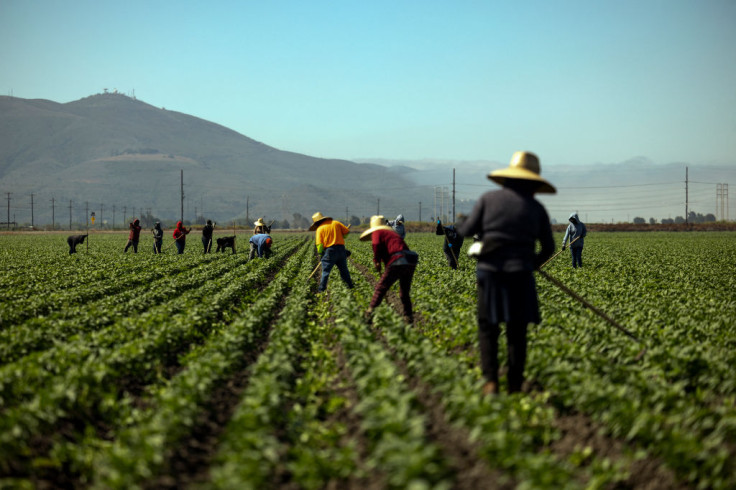
California's agricultural heartland is facing mounting losses as U.S. Immigration and Customs Enforcement (ICE) raids prompt large numbers of migrant farmworkers to abandon the fields in fear of arrest and deportation, a new report by Reuters reveals.
In Ventura County, a key farming region north of Los Angeles, growers report that up to 70% of laborers have disappeared from fields since early June, when ICE agents began ramping up their targeting of agricultural sites as part of President Donald Trump's intensified immigration enforcement campaign.
"If 70% of your workforce doesn't show up, 70% of your crop doesn't get picked and can go bad in one day," said Lisa Tate, a sixth-generation farmer in Ventura County to Reuters. "Most Americans don't want to do this work. Most farmers here are barely breaking even. I fear this has created a tipping point where many will go bust."
Two supervisors interviewed by the outlet said they've seen staffing drop from hundreds of workers to fewer than a quarter of their usual crews. "If things are ripe, they don't harvest within two or three days, the crop is sunburned or over mature," said central California farmer Greg Tesch. "We need the labor."
The impact is reverberating beyond California, as a report from Bloomberg explained earlier this month. From Texas to Idaho, several agricultural states describe similar labor disruptions. Shay Myers, an onion grower in Idaho and Oregon, said he's already had to abandon planting some crops due to worker shortages. "We will not feed our people in this country without these workers, plain and simple," Myers told Bloomberg.
Roughly 80% of U.S. farmworkers are foreign-born, nearly half of them undocumented, according to Douglas Holtz-Eakin, former director of the Congressional Budget Office. "This is bad for supply chains, bad for the agricultural industry," he said.
President Trump acknowledged the issue on Fox News during the weekend, claiming his administration is developing a "temporary pass" system that would allow undocumented workers in the agricultural and hospitality industries to continue working legally under employer oversight:
"When we go into a farm and we take away people that have been working there for 15 and 20 years, who were good, who possibly came in incorrectly... you end up destroying a farmer. It's a problem"
While some migrant workers have returned out of economic necessity, many continue to hide or take precautions such as carpooling with legal residents and avoiding public places. "If they show up to work, they don't know if they will ever see their family again," one undocumented worker told the outlet.
© 2025 Latin Times. All rights reserved. Do not reproduce without permission.






